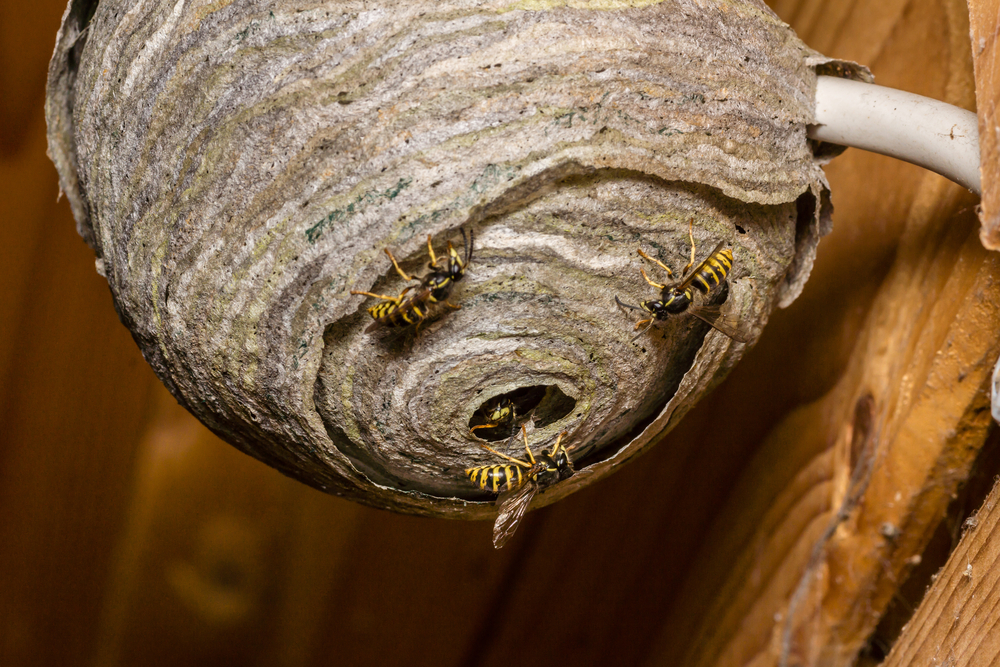Now Reading: Radioactive Wasp Nest Discovered at Nuclear Facility-No Wasps Found
-
01
Radioactive Wasp Nest Discovered at Nuclear Facility-No Wasps Found
Radioactive Wasp Nest Discovered at Nuclear Facility-No Wasps Found

Quick Summary
- A radioactive wasp nest was discovered at the Savannah River Site in South Carolina during a routine inspection by DOE employees.
- The site previously manufactured components for nuclear weapons, contributing to residual radiation contamination in the area.
- Radiological Control Operation (RCO) found the nest on July 3, 2025, near a tank stanchion and steadfast radiation levels were 10 times higher than federal regulations.
- The nest was sprayed for wasps, tested for radiation, bagged, and disposed of as radioactive waste; no live wasps were found during disposal.
- Investigations confirmed no current leak at the facility; experts believe the contamination is legacy radiation from operations when the site was active.
- Wasps may have used contaminated ground materials to construct their nests. Given species behavior, they rarely move far from their original location.
- There are concerns among watchdog groups about potential risks of radioactive material affecting wildlife or nearby areas.
Indian Opinion Analysis
The discovery of a radioactive wasp nest highlights lingering consequences of nuclear weapon production sites globally-with implications resonating far beyond immediate local contexts. For India, whose civil nuclear programs continue expanding alongside industrial waste management challenges, this event serves as a sobering reminder about long-term environmental stewardship. residual contamination from past operations poses risks that demand rigorous monitoring across generations.
While India’s existing efforts prioritize robust radiological safety protocols under institutions like NPCIL (Nuclear Power Corporation of India), lessons can be drawn from this case regarding wildlife interactions with contaminated materials-a unique but meaningful factor frequently enough overlooked in policy discourse. As seen here with legacy contamination interacting indirectly via biological systems such as insects’ nesting behaviors-India could consider integrating ecosystem-centric risk assessments into its own nuclear facility management plans to mitigate unforeseeable issues.while expert evaluation clarified minimal risk to public health due to containment measures taken at savannah River Site-the vigilance exhibited underscores global best practices emphasizing openness and responsiveness that countries including India should aim toward fostering consistently within both civilian & defense-related projects harmoniously preparing preemptively safeguards ensuring no ecological/global liabilities beneath operational zones scale unseen bio inter dependencies elsewhere.Reflection broader evolve ahead pragmatically correct
























